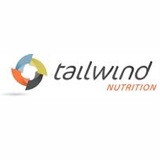Can you run a marathon with zero prep?
I saw this subject line in my inbox recently: “Can you run a marathon with zero prep?” Without hesitation, I thought yes—because I’ve done exactly that.
When I ran the Tour de Trails Brooks Surf Coast Trail Marathon, my marathon prep was… well, non-existent. Zero structured training. No lead-up plan. Just a long-standing base of endurance, a last-minute decision, and a strong sense of “why not?”
Now, before you think I’m endorsing this as a coach let me be clear: I’m not. I absolutely advocate for consistent training. I build programs for runners that focus on steady progress, smart load, and intentional recovery. That said, life isn’t always black and white and sometimes your base fitness can carry you further than you’d think (if you are a seasoned runner).
But here’s the key difference: it reads run, not race.
If your goal is to simply complete the distance especially if you’ve been maintaining general fitness and endurance then yes, you might surprise yourself. But if your goal is to race it, to push pace, compete, chase time, or hit a PB? That’s another story entirely.
Racing requires preparation
Structured speedwork, long runs, tempo efforts, strength training, fuelling strategies, recovery protocols all the invisible work that allows you to show up on race day not just ready to run, but ready to perform. Racing well is a stress on the body. It asks for respect. Both in the build-up and in the recovery.
When I ran the Surf Coast Trail marathon this time, it wasn’t about splits or placing. It was about soaking up the atmosphere laughing, taking mid-race selfies, chatting to others on course, and enjoying the breathtaking scenic coastline. I was over an hour slower than my PB on the same course. But this run wasn’t about the clock it was about connection and presence. It was about ‘more fun’ than ‘run’.
Know your goals
When planning your race calendar, think in terms of A, B, and C races.
- A-race: Your priority race. The one you’re working towards with intention.
- B-race: A stepping stone, still important but more about testing fitness and race strategies.
- C-race: Low-pressure events that are for fun, learning, or community connection.
Then break down your goals into these categories:
- Outcome goals – Finishing, qualifying, placing.
- Performance goals – Running a certain time, hitting splits, achieving a PB.
- Process goals – Weekly mileage, adding strength sessions, refining fuelling, pacing, or mental strategies.
Process goals are the engine that drives your performance. They’re what get you out of bed on cold mornings, they build your base fitness – they are the work horse to every other goal.
As a runner, no matter where you are on your journey, don’t forget—know yourself. Do you thrive solo or do you need a running crew for motivation? Are you a planner or more go-with-the-flow type of runner? Training should be tailored to you, because this journey is personal.
So, can you run a marathon with zero prep?
Yes, you can, but should you? If you’ve got endurance in the tank, mental experience in the way of a steady mindset, go for it (carefully). But if your wish to avoid injury, or a mid-race existential crisis, then structured training is the smarter path.
There’s nothing wrong with spontaneity some of the best runs are unplanned. But when it comes to 42.2km, it pays to prep especially if you don’t have experience behind you.
Need help?
Need help planning your next run event? Let’s chat.









